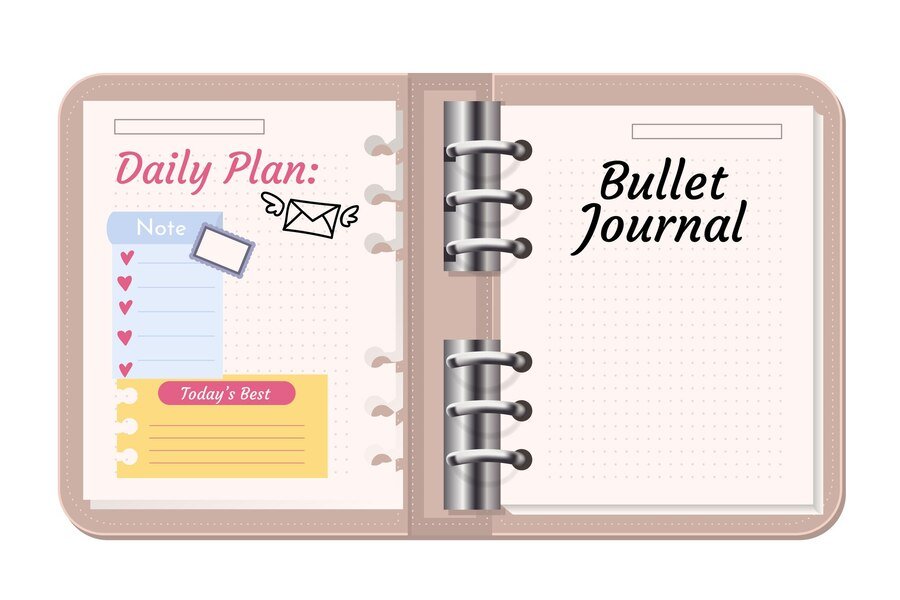
2.1 Introduction

Managing a diary may sound like a simple task, but it actually involves a significant investment of effort and responsibility.
Some managers have extremely complex diaries and can include up to a whopping 80 percent of a PA's job role! The running of a successful organization depends on being in control of time and tasks at all times. Senior management cannot be expected to focus on their goals and maintain their diaries at the same time. Effective diary management leads to successful time management and better utilization of the work day.
Diary management can consume a third of your working day and is an integral part of maximizing your boss' productivity. Although diary management helps managers get to meetings on time, the utility of a diary extends far beyond that - it also helps schedule your manager's time outside of office hours. Diary management is a complex and time-consuming task, but is an essential tool for organizational success.
Ideally speaking, the boss should not edit or amend the diary without informing their PA. All meeting requests (including arrangements made verbally) should be routed to the PA who will then pencil in changes, make amendments or note cancellations. Once you are able to establish complete control over your diary management, you can leverage your diary to maximize your boss's productivity. A good diary is managed with decisive yet flexible ideas.
Flexibility is an important attribute of every diary. There are PAs who resist making changes to schedules and appointments, but it's always preferable to be able to accommodate changes. These amendments may occur due to changes in the manager's schedule. At other times, changes will be necessitated due to external factors like suppliers, vendors or customers.
A PA needs to oversee their manager's diary and manage their boss's meetings with internal and external contacts. You will need to organise, arrange and book appointments in order to ensure that the day unfolds in a smooth manner. You must make note of any changes and update reminders on time so that schedules remain undisrupted. A large portion of preparation and follow up with clients or events will be your task also. A manager needs your help so they can concentrate on other operations and tasks which are crucial to the running of a successful business.
You can try booking recurring appointments with specific individuals, such as people like clients, recurring customers, board meetings and assistants of other external staff. A recurring meeting gives you a chance to catch up, but they should be managed differently and you should never schedule them for more than a year in advance (preferably never more than 6 months in advance).
If need be, then revisit the meeting and details with your manager and other attendees. Some meetings can take place over the phone rather than face-to-face. You can even conference call on Skype or use other conferencing software and apps.
Never delete recurring meetings.
This could delete all of your planned meetings and would delete some engagements that you need to keep track of. Change the date of a recurring meeting or the end date so that other dates still retain flexibility.Your boss or clients may often ask you to find time to book a meeting that is not 100% confirmed. It is worth putting a 'hold' over the meeting to notify others that the event may or may not take place. Set a date in the executive diary to confirm whether or not you can delete the meeting from your calendar.
Before booking any meetings, check to see what your boss has already planned. Check on the activities scheduled around the meeting. A difficult meeting could affect their mood during subsequent meetings. Some meetings may require improved concentration and focus. Activities (such as writing reports) can affect the performance of your boss at other scheduled events. They will appreciate you scheduling the hard work in a way that does not have a negative effect on their performance. Incorporate breathing room in tight schedules, thus allowing your boss some relaxation during a chaotic and harried day.
Activity 1 - Practising Diary Management
Estimated time: 10-15 minutes
Diary management is necessary to ensure that dates and times stay in order. To illustrate that you have retained what you have learned, practise scheduling meetings, appointments or commitments in your own life. Remember to schedule any tasks, or personal tasks, and to allow time in your day for breaks.
2.2 Travel

Always keep an eye on overall scenario and incorporate room for flexibility.
Your boss may have other plans and activities that they must attend to. There could also be other extraneous factors that affect the scheduling of appointments. For example, heavy traffic can be a disrupting factor and transport can be delayed. Allow time for mishaps that could lie out of their control. They would not appreciate appearing unprepared and harried in front of clients or colleagues.
You can use the 'all day' appointment feature on Outlook. This can remind your boss of important dates, annual leave of staff, and other general information. Remember that this 'all day' feature will look different when you use it on different devices. Research shows that bosses enjoy a 75% greater chance of fulfilling their duties if it is written in their diary or calendar.You can colour code these plans with Outlook Office for meetings, reading time, answering emails and lunch plans. You could even colour code your boss's day so that it becomes easier to coordinate schedules with him/her.
2.3 Easy Access
If you have the joy of using 2 screens at work you can keep your boss's calendar open at all times.
If this is not a viable option, then you can print the manager's diary so you have a working document
that is relevant for each working day.
Each calendar entry should include
. Date, time and location
. Attendees
. Agenda
. Supporting papers
. The objective and nature of every meeting
Each decision you make when managing a work diary is going to have an effect on planning. Time is precious and you might want to ensure that your manager enjoys the prospect of a productive day ahead.When you respond to diary appointments concerning others, you should always request to see an agenda. Never accept somebody telling you that your manager is simply 'expecting them'. That is not an acceptable response on a professional level; appointments need to be incorporated beforehand and the PA should be fully informed of visitors and meetings scheduled for the day.
Try and use folders
If you need extra help keeping on top of supporting documents or other files in your diary, buy an expanding folder box that has dividers in it. Allocate one for each day of the month. Put all vital information into general documents in the order that they will be required during the course of the day.
At the end of each day, you can provide the next day's paperwork in clear plastic wallets and add a printed copy of their diary. You can also number each meeting on paper so records are always kept in order. This is a great system to get used to since it blends clarity, simplicity and efficiency. Diary management is a crucial component of planning and helps you manage the boss's time effectively.
2.4 Important Diary Management Tips

1. Observe your boss and make a note of their habits and inclinations. For example, some bosses prefer morning meetings while others peak later during the day. Try and schedule meetings at the time when they are at their best.
2. If you find that certain meetings keep getting cancelled, then schedule them less frequently or opt to classify those as phone meetings. Diaries provide important clues that help minimise time-wasting meetings.
3. Assign colours to different type of activities and appointments. For example, black for important meetings, green for travelling, or blue for off-site meetings, etc. This will help view the scheduled events of the day at a glance.
4. Avoid scheduling meetings simply when you spot a gap in the diary. Before booking an appointment, you need to take in various factors into consideration. These could include distance to be travelled (remember to factor in rush hour traffic) and the urgency of the meeting. It pays to schedule strategically placed gaps in order to allow breathing space and absorb any delays.
5. While meetings are important, they are not the only activity in a boss's day. They will require time to work on their emails, reports and presentations too. Ensure that you leave space in the diary for him/her to complete other work.
6. As soon as a meeting or activity looms up, note it in your diary at once. Avoid putting it off for later. For meetings, ensure that you note down the date, time, venue and the objective of the meeting. Also note down the contact and the background to the call/meeting.
7. Appointments often involve preparatory input or follow-ups or both. So avoid noting down an appointment and forgetting about its existence. Read your diary before the commencement of the following day in order to get a head start.
Tip: Stress and confusion are typically caused by tasks that are undone. Keep your boss's diary updated at all times to identify tasks that require completion.
8. Electronic diary systems are especially useful when the PA and the boss have to coordinate changes in schedules. Electronic diaries require turning on, access, Wi-Fi, etc., but in this digital age, such issues do not pose serious problems. Electronic systems are said to provide 'meshed' diary keeping techniques.
2.5 Remember
A PA's role involves providing efficient and reliable support to the boss in order to maximise their productivity.
Several bosses rely solely on a competent PA to ensure that their day is organised as best as possible.
Whether you opt to use an electronic or paper diary, make sure that you have all your information in one centralised location. All appointments need to be noted in the exact same place, otherwise your boss could miss appointments and meetings.
Activity 2 - Expanding Upon Your Work Diary
Estimated time: 10 -15 minutes
After implementing diary management into your personal or professional life, you should be comfortable with the concept of using this tool. However, there are more aspects to a work diary that you should practise to ensure that you have a firm grasp on the concept.
You should still have your practise diary from the first activity. Now, we are going to expand upon what you learned in the module. First, continue to update your diary daily with any new appointments, then, you will implement a folder system. Be sure to allocate a folder for each day of the month and include all important documents in your folders.
2.6 Additional Diary Management Strategies
Talk to your boss
Sit them down and agree on times that are suitable for all meetings. Request them for their opinions on the meetings which can be rescheduled. Examine your options and delegate extra duties. You may also need to send apologies to parties for cancelling or rescheduling meetings.
Respond to diary appointments
If your boss has indicated that they wish to attend an event, book a meeting or such-like, you may wish to send the RSVP. Sometimes you will need to give a definite response, but for larger events, it is acceptable to reply stating that you hope to attend.
Find out the nature of each event
This can help you to get organised as quickly as possible. For example, it could be a business meeting, a less formal event or an important discussion.
Follow up
If you have discussed plans over the phone for an event, follow up with a meeting or email to finalise plans. Sending your manager to an event fully prepared is vital for both of you. Take note of everything possible. It's all right to provide a gentle reminder before a meeting so your boss has some room to prepare for the event ahead.
Review the diary
Take some time each week to review your weekly diary plan and plan every activity from Monday to Friday. Use a consistent diary system and only change it if it's really required.
2.7 Events to Plan Will Include:
. Appointments/commitments/meetings
. Lunch breaks!
. Other planned activities or excursions
. Personal tasks
Update the diary DAILY
A PA should constantly update their work diary throughout the day as necessary. Treat each activity planned as if they were all your best customers, never sacrifice customer satisfaction for smaller, less urgent duties. You must learn to differentiate between urgent and important because prioritisation plays a key role in diary management.
Always travel smartly, note and research all necessary travel information that can keep you organised while you travel. This is important for you and your boss. There are many phone apps available that can act as effective diaries. With smart phone technology at your fingertips, diary management is no longer a problem while travelling.
As a PA, you will need to be creative and use your common sense at all times. This is paramount. Guidance will always come from your boss and they will let you know what their priorities are.
Prior to accepting a meeting request, you may wish to ask the following questions:
. Does your boss have to attend the meeting in person? Can they delegate or receive a briefing before the commencement of the meeting?
. Can the meeting be arranged for an earlier date? What time of day will it be held at?
. Will your boss be there for the whole duration?
. Is the meeting really necessary? Can the interaction be transformed into a conference call or Skype meeting?